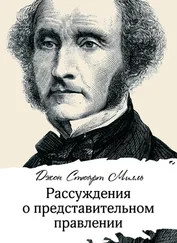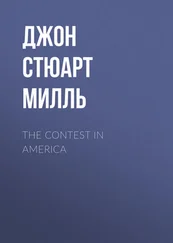Джон Милль - Auguste Comte and Positivism
Здесь есть возможность читать онлайн «Джон Милль - Auguste Comte and Positivism» — ознакомительный отрывок электронной книги совершенно бесплатно, а после прочтения отрывка купить полную версию. В некоторых случаях можно слушать аудио, скачать через торрент в формате fb2 и присутствует краткое содержание. Жанр: Философия, literature_19, foreign_antique, foreign_prose, на английском языке. Описание произведения, (предисловие) а так же отзывы посетителей доступны на портале библиотеки ЛибКат.
- Название:Auguste Comte and Positivism
- Автор:
- Жанр:
- Год:неизвестен
- ISBN:нет данных
- Рейтинг книги:4 / 5. Голосов: 1
-
Избранное:Добавить в избранное
- Отзывы:
-
Ваша оценка:
- 80
- 1
- 2
- 3
- 4
- 5
Auguste Comte and Positivism: краткое содержание, описание и аннотация
Предлагаем к чтению аннотацию, описание, краткое содержание или предисловие (зависит от того, что написал сам автор книги «Auguste Comte and Positivism»). Если вы не нашли необходимую информацию о книге — напишите в комментариях, мы постараемся отыскать её.
Auguste Comte and Positivism — читать онлайн ознакомительный отрывок
Ниже представлен текст книги, разбитый по страницам. Система сохранения места последней прочитанной страницы, позволяет с удобством читать онлайн бесплатно книгу «Auguste Comte and Positivism», без необходимости каждый раз заново искать на чём Вы остановились. Поставьте закладку, и сможете в любой момент перейти на страницу, на которой закончили чтение.
Интервал:
Закладка:
The concrete sciences are inevitably later in their development than the abstract sciences on which they depend. Not that they begin later to be studied; on the contrary, they are the earliest cultivated, since in our abstract investigations we necessarily set out from spontaneous facts. But though we may make empirical generalizations, we can form no scientific theory of concrete phaenomena until the laws which govern and explain them are first known; and those laws are the subject of the abstract sciences. In consequence, there is not one of the concrete studies (unless we count astronomy among them) which has received, up to the present time, its final scientific constitution, or can be accounted a science, except in a very loose sense, but only materials for science: partly from insufficiency of facts, but more, because the abstract sciences, except those at the very beginning of the scale, have not attained the degree of perfection necessary to render real concrete sciences possible.
Postponing, therefore, the concrete sciences, as not yet formed, but only tending towards formation, the abstract sciences remain to be classed. These, as marked out by M. Comte, are six in number; and the principle which he proposes for their classification is admirably in accordance with the conditions of our study of Nature. It might have happened that the different classes of phaenomena had depended on laws altogether distinct; that in changing from one to another subject of scientific study, the student left behind all the laws he previously knew, and passed under the dominion of a totally new set of uniformities. The sciences would then have been wholly independent of one another; each would have rested entirely on its own inductions, and if deductive at all, would have drawn its deductions from premises exclusively furnished by itself. The fact, however, is otherwise. The relation which really subsists between different kinds of phaenomena, enables the sciences to be arranged in such an order, that in travelling through them we do not pass out of the sphere of any laws, but merely take up additional ones at each step. In this order M. Comte proposes to arrange them. He classes the sciences in an ascending series, according to the degree of complexity of their phaenomena; so that each science depends on the truths of all those which precede it, with the addition of peculiar truths of its own.
Thus, the truths of number are true of all things, and depend only on their own laws; the science, therefore, of Number, consisting of Arithmetic and Algebra, may be studied without reference to any other science. The truths of Geometry presuppose the laws of Number, and a more special class of laws peculiar to extended bodies, but require no others: Geometry, therefore, can be studied independently of all sciences except that of Number.
Rational Mechanics presupposes, and depends on, the laws of number and those of extension, and along with them another set of laws, those of Equilibrium and Motion. The truths of Algebra and Geometry nowise depend on these last, and would have been true if these had happened to be the reverse of what we find them: but the phaenomena of equilibrium and motion cannot be understood, nor even stated, without assuming the laws of number and extension, such as they actually are. The phaenomena of Astronomy depend on these three classes of laws, and on the law of gravitation besides; which last has no influence on the truths of number, geometry, or mechanics. Physics (badly named in common English parlance Natural Philosophy) presupposes the three mathematical sciences, and also astronomy; since all terrestrial phaenomena are affected by influences derived from the motions of the earth and of the heavenly bodies. Chemical phaenomena depend (besides their own laws) on all the preceding, those of physics among the rest, especially on the laws of heat and electricity; physiological phaenomena, on the laws of physics and chemistry, and their own laws in addition. The phaenomena of human society obey laws of their own, but do not depend solely upon these: they depend upon all the laws of organic and animal life, together with those of inorganic nature, these last influencing society not only through their influence on life, but by determining the physical conditions under which society has to be carried on. "Chacun de ces degré's successifs exige des inductions qui lui sont propres; mais elles ne peuvent jamais devenir systématiques que sous l'impulsion déductive resultée de tous les ordres moins compliqués." 3 3 Système de Politique Positive, ii. 36.
Thus arranged by M. Comte in a series, of which each term represents an advance in speciality beyond the term preceding it, and (what necessarily accompanies increased speciality) an increase of complexity – a set of phaenomena determined by a more numerous combination of laws; the sciences stand in the following order: 1st, Mathematics; its three branches following one another on the same principle, Number, Geometry, Mechanics. 2nd, Astronomy. 3rd, Physics. 4th, Chemistry. 5th, Biology. 6th, Sociology, or the Social Science, the phaemomena, of which depend on, and cannot be understood without, the principal truths of all the other sciences. The subject matter and contents of these various sciences are obvious of themselves, with the exception of Physics, which is a group of sciences rather than a single science, and is again divided by M. Comte into five departments: Barology, or the science of weight; Thermology, or that of heat; Acoustics, Optics, and Electrology. These he attempts to arrange on the same principle of increasing speciality and complexity, but they hardly admit of such a scale, and M. Comte's mode of placing them varied at different periods. All the five being essentially independent of one another, he attached little importance to their order, except that barology ought to come first, as the connecting link with astronomy, and electrology last, as the transition to chemistry.
If the best classification is that which is grounded on the properties most important for our purposes, this classification will stand the test. By placing the sciences in the order of the complexity of their subject matter, it presents them in the order of their difficulty. Each science proposes to itself a more arduous inquiry than those which precede it in the series; it is therefore likely to be susceptible, even finally, of a less degree of perfection, and will certainly arrive later at the degree attainable by it. In addition to this, each science, to establish its own truths, needs those of all the sciences anterior to it. The only means, for example, by which the physiological laws of life could have been ascertained, was by distinguishing, among the multifarious and complicated facts of life, the portion which physical and chemical laws cannot account for. Only by thus isolating the effects of the peculiar organic laws, did it become possible to discover what these are. It follows that the order in which the sciences succeed one another in the series, cannot but be, in the main, the historical order of their development; and is the only order in which they can rationally be studied. For this last there is an additional reason: since the more special and complete sciences require not only the truths of the simpler and more general ones, but still more their methods. The scientific intellect, both in the individual and in the race, must learn in the move elementary studies that art of investigation and those canons of proof which are to be put in practice in the more elevated. No intellect is properly qualified for the higher part of the scale, without due practice in the lower.
Mr Herbert Spencer, in his essay entitled "The Genesis of Science," and more recently in a pamphlet on "the Classification of the Sciences," has criticised and condemned M. Comte's classification, and proposed a more elaborate one of his own: and M. Littré, in his valuable biographical and philosophical work on M. Comte ("Auguste Comte et la Philosophie Positive"), has at some length criticised the criticism. Mr Spencer is one of the small number of persons who by the solidity and encyclopedical character of their knowledge, and their power of co-ordination and concatenation, may claim to be the peers of M. Comte, and entitled to a vote in the estimation of him. But after giving to his animadversions the respectful attention due to all that comes from Mr Spencer, we cannot find that he has made out any case. It is always easy to find fault with a classification. There are a hundred possible ways of arranging any set of objects, and something may almost always be said against the best, and in favour of the worst of them. But the merits of a classification depend on the purposes to which it is instrumental. We have shown the purposes for which M. Comte's classification is intended. Mr Spencer has not shown that it is ill adapted to those purposes: and we cannot perceive that his own answers any ends equally important. His chief objection is that if the more special sciences need the truths of the more general ones, the latter also need some of those of the former, and have at times been stopped in their progress by the imperfect state of sciences which follow long after them in M. Comte's scale; so that, the dependence being mutual, there is a consensus , but not an ascending scale or hierarchy of the sciences. That the earlier sciences derive help from the later is undoubtedly true; it is part of M. Comte's theory, and amply exemplified in the details of his work. When he affirms that one science historically precedes another, he does not mean that the perfection of the first precedes the humblest commencement of those which follow. Mr Spencer does not distinguish between the empirical stage of the cultivation of a branch of knowledge, and the scientific stage. The commencement of every study consists in gathering together unanalyzed facts, and treasuring up such spontaneous generalizations as present themselves to natural sagacity. In this stage any branch of inquiry can be carried on independently of every other; and it is one of M. Comte's own remarks that the most complex, in a scientific point of view, of all studies, the latest in his series, the study of man as a moral and social being, since from its absorbing interest it is cultivated more or less by every one, and pre-eminently by the great practical minds, acquired at an early period a greater stock of just though unscientific observations than the more elementary sciences. It is these empirical truths that the later and more special sciences lend to the earlier; or, at most, some extremely elementary scientific truth, which happening to be easily ascertainable by direct experiment, could be made available for carrying a previous science already founded, to a higher stage of development; a re-action of the later sciences on the earlier which M. Comte not only fully recognized, but attached great importance to systematizing. 4 4 The strongest case which Mr Spencer produces of a scientifically ascertained law, which, though belonging to a later science, was necessary to the scientific formation of one occupying an earlier place in M. Comte's series, is the law of the accelerating force of gravity; which M. Comte places in Physics, but without which the Newtonian theory of the celestial motions could not have been discovered, nor could even now be proved. This fact, as is judiciously remarked by M. Littré, is not valid against the plan of M. Comte's classification, but discloses a slight error in the detail. M. Comte should not have placed the laws of terrestrial gravity under Physics. They are part of the general theory of gravitation, and belong to astronomy. Mr Spencer has hit one of the weak points in M. Comte's scientific scale; weak however only because left unguarded. Astronomy, the second of M. Comte's abstract sciences, answers to his own definition of a concrete science. M. Comte however was only wrong in overlooking a distinction. There is an abstract science of astronomy, namely, the theory of gravitation, which would equally agree with and explain the facts of a totally different solar system from the one of which our earth forms a part. The actual facts of our own system, the dimensions, distances, velocities, temperatures, physical constitution, &c., of the sun, earth, and planets, are properly the subject of a concrete science, similar to natural history; but the concrete is more inseparably united to the abstract science than in any other case, since the few celestial facts really accessible to us are nearly all required for discovering and proving the law of gravitation as an universal property of bodies, and have therefore an indispensable place in the abstract science as its fundamental data.
Интервал:
Закладка:
Похожие книги на «Auguste Comte and Positivism»
Представляем Вашему вниманию похожие книги на «Auguste Comte and Positivism» списком для выбора. Мы отобрали схожую по названию и смыслу литературу в надежде предоставить читателям больше вариантов отыскать новые, интересные, ещё непрочитанные произведения.
Обсуждение, отзывы о книге «Auguste Comte and Positivism» и просто собственные мнения читателей. Оставьте ваши комментарии, напишите, что Вы думаете о произведении, его смысле или главных героях. Укажите что конкретно понравилось, а что нет, и почему Вы так считаете.











